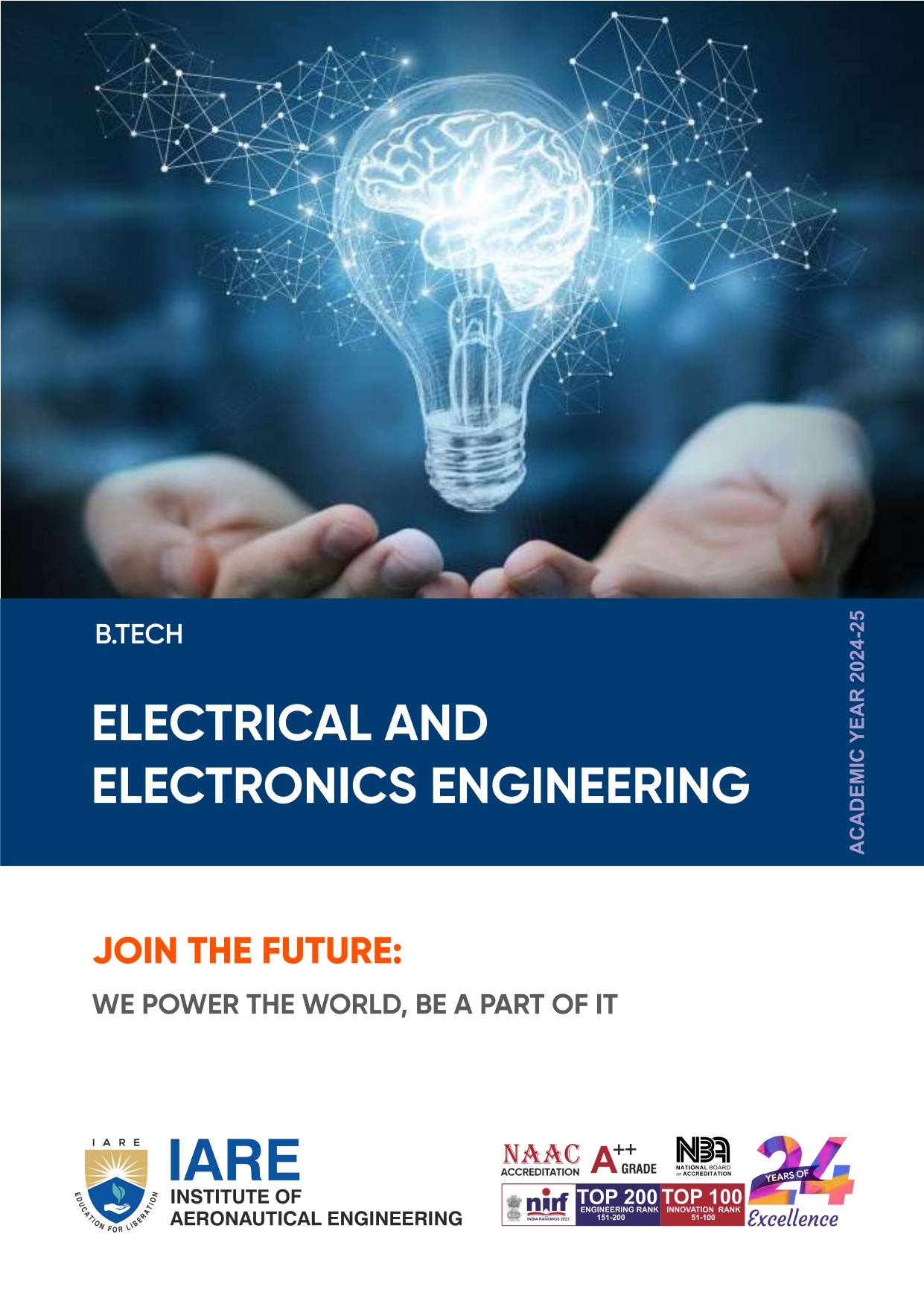Massive Open Online Courses (MOOCs) - M.Tech
It is one of the most amazing innovations in online learning over the past few years has been the growth and development of Massive Open Online Courses, better known as MOOCs. These courses (MOOCs) are the future of Quality Enhancement in Engineering Education (QEEE) and improve self-learning.
Generally speaking, MOOCs are college-level courses made available, free of charge or with nominal charges. At IARE, MOOCs are often offered from highly prestigious colleges and universities like Harvard, Stanford and, most predominantly, MIT, and taught by the same professors and instructors that teach them on their famous campuses and by a variety of private providers.
The students admitted under Autonomous status in M.Tech I Semester are required to complete one MOOC course by the end of the semester. Below you will find the course titles and links to some of the most popular MOOCs offered for M.Tech (PEED) I semester during academic year 2016 - 2017:
Course Details
|
|
| MOOC procedure |
Coursera |
| Conducting Institute |
University of Colorado Boulder |
| Instructor |
Dr. Dragan Maksimovic, Robert Erickson and Dr. Khurram |
| Starting Date / Duration |
4 Weeks/24 October, 2016 |
| Website |
https://www.class-central.com/mooc/5414/coursera-magnetics-for-power-electronic-converters |
| Course Description |
This course covers the analysis and design of magnetic components, including inductors and transformers, used in power electronic converters. The course starts with an introduction to physical principles behind inductors and transformers, including the concepts of inductance, core material saturation, air gap and energy storage in inductors, reluctance and magnetic circuit modeling, transformer equivalent circuits, magnetizing and leakage inductance. Multi-winding transformer models are also developed, including inductance matrix representation, for series and parallel structures. Modeling of losses in magnetic components covers core and winding losses, including skin and proximity effects. Finally, a complete procedure is developed for design optimization of inductors in switched-mode power converters.
|
|
|
|
| MOOC procedure |
Coursera |
| Conducting Institute |
University of Colorado Boulder |
| Instructor |
Dr. Dragan Maksimovic, Robert Erickson and Dr. Khurram |
| Starting Date /Duration |
4 Weeks/24 October, 2016 |
| Website |
https://www.class-central.com/mooc/5411/coursera-converter-circuits |
| Course Description |
This course introduces more advanced concepts of switched mode converter circuits. Realization of the power semiconductors in inverters or in converters having bidirectional power flow is explained. Power diodes, power MOSFETs, and IGBTs are explained, along with the origins of their switching times. Equivalent circuit models are refined to include the effects of switching loss. The discontinuous conduction mode is described and analyzed. A number of well-known converter circuit topologies are explored, including those with transformer isolation. |
|
|
|
|
MOOC procedure
|
Coursera
|
|
Conducting Institute
|
Technical University of Denmark
|
|
Instructor
|
Eva Bundgaard, Frederik Krebs and MikkelJørgensen
|
|
Starting Date / Duration
|
6 Weeks/31 October, 2016
|
|
Website
|
https://www.class-central.com/mooc/1822/coursera-organic-solar-cells-theory-and-practice
|
|
Course Description
|
The goal of the course is to give students awareness of the largest alternative form of energy and how organic / polymer solar cells can harvest this energy. The course provides an insight into the theory behind organic solar cells and describes the three main research areas within the field i.e. materials, stability and processing. Learn about artificial neural networks and how they're being used for machine learning, as applied to speech and object recognition, image segmentation, modeling language and human motion, etc. We'll emphasize both the basic algorithms and the practical tricks needed to get them to work well.
|
|
|
|
| MOOC procedure |
Coursera |
| Conducting Institute |
University Of Toronto |
| Instructor |
Geoffrey Hinton |
| Starting Date / Duration |
16 Weeks/31 October, 2016 |
| Website |
https://www.class-central.com/mooc/398/coursera-neural-networks-for-machine-learning |
| Course Description |
Learn about artificial neural networks and how they're being used for machine learning, as applied to speech and object recognition, image segmentation, modeling language and human motion, etc. We'll emphasize both the basic algorithms and the practical tricks needed to get them to work well |
|
|
|
| MOOC procedure |
Coursera |
| Conducting Institute |
University of Colorado Boulder |
| Instructor |
Dr. Dragan Maksimovic, Robert Erickson and Dr. Khurram |
| Starting Date / Duration |
4 Weeks/31 October, 2016 |
| Website |
https://www.class-central.com/mooc/5416/coursera-advanced-converter-control-techniques |
| Course Description |
This course covers advanced converter control techniques, including averaged-switch modeling and Spice simulations, modeling and design of peak current mode and average current mode controlled converters, as well as an introduction to control of single-phase ac grid tied rectifiers and inverters. Design and simulation examples include wide bandwidth point-of-load voltage regulators, low-harmonic power-factor-correction rectifiers, and grid-tied inverters for solar photovoltaic power systems. Upon completion of the course, you will be able to model, design control loops, and simulate state-of-the-art pulse-width modulated (PWM) dc-dc converters, dc-ac inverters, ac-dc rectifiers, and other power electronics systems |
|








 Work with Us
Work with Us Campus Map
Campus Map How to Reach Us
How to Reach Us Online Degree Verification
Online Degree Verification Photo Gallery
Photo Gallery